Yesterday, September 18, in Hanoi, the Ministry of Education and Training held a conference on higher education (HE) 2025. In which, university admissions is still a hot topic, attracting public attention, because as Mr. Nguyen Tien Thao, Director of the Department of Higher Education, said at the conference: "Admissions is the soul, the breath of university education institutions".
42.4% OF CANDIDATES PASSED BY REVIEWING HIGH SCHOOL TRANSCRIPT
According to Mr. Nguyen Tien Thao, although the number of candidates taking the 2025 high school graduation exam has not changed much compared to previous years, the general admission system has recorded a huge increase in the number of candidates and the number of university admission wishes. Compared to last year, although the number of candidates only increased by about 100,000, the number of wishes increased by nearly 3.5 million (reaching 7.6 million wishes).
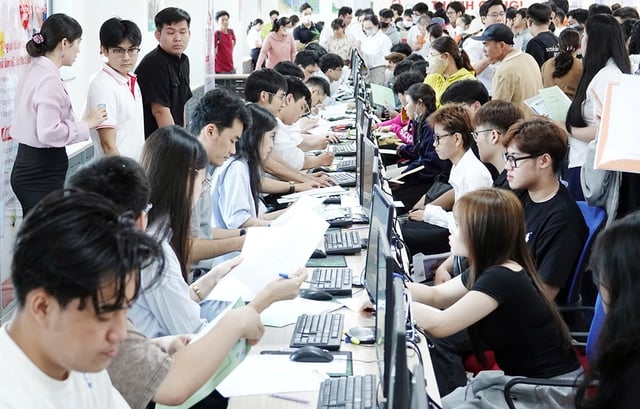
Successful candidates complete admission procedures to university in 2025
PHOTO: DAO NGOC THACH
The entire system uses 17 admission methods. Of which, 39.1% of students are admitted by considering high school graduation exam results; 42.4% by considering academic records; and 18.5% by other methods. Although the number of students admitted by considering academic records has a large impact on admission results, the impact of this method on learning outcomes is a question that universities need to consider.
"It's time we reconsider whether we should continue to consider admission based on academic records in the future," Mr. Thao questioned.
Another problem is that the total number of NV is too large, even though the increase in TS is not significant. "7.6 million NV is extremely large. Although information technology can handle it (in filtering virtual - PV), it will be wasteful if TS registers too many unidentified NV. "This is the time we need to reconsider requiring TS to be responsible when placing NV in which industry, which school, rather than placing NV emotionally," Mr. Thao proposed.
At the conference, the Ministry of Education and Training distributed survey forms to all delegates with two contents: to remove or use the admission method based on academic records, and the number of registered candidates (maximum 5 candidates, 10 candidates, or unlimited candidates). Based on the survey results, the Ministry of Education and Training will adjust the regulations, applicable to university admissions in 2026.
Speaking to the press on the sidelines of the conference, Mr. Nguyen Tien Thao said that if there are any adjustments, the Ministry will announce them in September, along with regulations on university admissions in 2026.
INNOVATION OF ENROLLMENT ACCORDING TO RESOLUTION 71 REQUIREMENTS
Explaining why the Ministry of Education is asking for opinions on eliminating the consideration of academic records at this year's university education conference, Mr. Nguyen Tien Thao said: "We have gone through a period of using academic records for admission, it is time to look back and evaluate comprehensively to ensure fairness, quality and efficiency. The highest goal of admission innovation according to the requirements of Resolution 71 of the Politburo is to recruit students with substance and quality. It is necessary to review all methods. Especially with large methods that have a large percentage of admitted students, or are used by many schools, we need to analyze and evaluate comprehensively. If they are effective and of good quality, we will continue to maintain and develop them. If not, we will adjust them appropriately."
According to Mr. Thao, the biggest goal of Resolution 71 and the Law on Higher Education is to modernize education and improve quality, ensure training of high-quality human resources, and develop the economy in the new period. Admission is only one step in the entire training process. With the admission stage, the education and training sector must consider methods, evaluate, and recognize results appropriately.
Other steps will also be implemented synchronously and effectively, including financial support mechanisms from the state, tuition policies, scholarships, resources for schools and industries; creating conditions for priority industries to develop, and non-priority industries that society needs to maintain.
Resolution 71 requires the education and training sector to develop an admission plan based on assessing actual professional or input capacity. Ensuring quality and improving input quality is one of the entire processes of university education (the process includes admission, training organization, graduation survey, student feedback, etc.).
Regarding the limitation of NV of TS, Mr. Thao explained: "According to statistics, there are about more than 20% of TS who register for more than 10 NV, a large proportion. However, very few TS are admitted with high NV such as NV 10, NV 11. When registering for many, the goal and responsibility of the TS to the school and industry will be poor, and the motivation to strive will also be poor. Statistics also show that, often few students enroll when admitted to high NV. This wastes resources for society: in terms of fees, systems, human resources and time of schools. We want students and parents to clearly define their goals. Only then will they love the school, love the industry, love the profession, rather than defining it hopelessly or without purpose."
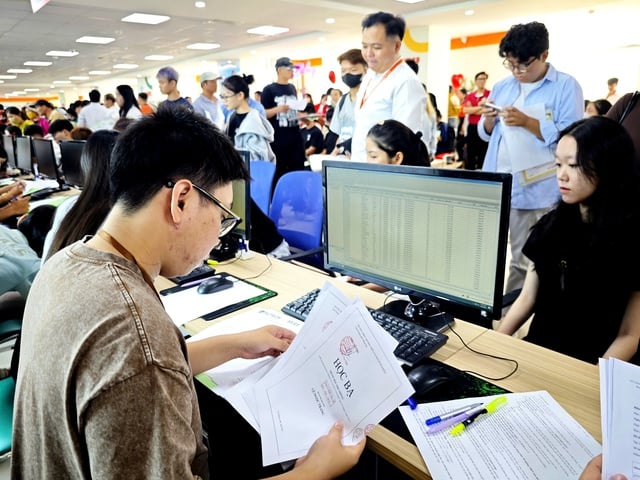
In 2025, the number of candidates admitted to university by considering academic records will be 42.4%, the highest among 17 methods.
PHOTO: DAO NGOC THACH
C PREPARING THE ROADMAP FOR COMPUTER-BASED HIGH SCHOOL GRADUATION EXAM IN 2027
Concluding the conference, Minister of Education and Training Nguyen Kim Son said that the Ministry has a plan, the 2027 high school graduation exam will begin to test a part of the exam on computers with a comprehensive exam. Since 2026, the education and training sector has had to take steps to prepare for this process.
For units that organize computer-based competency assessment tests, the Ministry of Education and Training will require adjustments to balance the balance. The Department of Higher Education will invite units to sit together to discuss and agree on setting principles and criteria, so that the tests are not too different in method and standards.
For the 2026 university entrance exam, if the Ministry of Education and Training makes any adjustments, it will focus on two things. First, will the admission process based on academic records be maintained or not, and if so, to what extent? Second, the current unlimited registration of candidates for NV does not necessarily bring many opportunities; sometimes it makes candidates confused and loses all initiative. Therefore, the place that seems to bring the most favorable opportunities may sometimes make it difficult for candidates. "But how will the restrictions be regulated to ensure the highest choice for candidates, reduce the complexity of the process, but still ensure the right to have many choices for candidates," Minister Nguyen Kim Son directed.
In 2025, the benchmark score for all methods decreased sharply, nearly 3 points.
According to Mr. Nguyen Tien Thao, the results of the first round of university admissions in 2025 show that the number of candidates eligible for admission is about 773,000 (higher than previous years). The number of candidates and the rate of candidates confirmed to enroll in university both increased, 613,335 students, equivalent to 52.87% of the total number of candidates taking the high school graduation exam (in 2024 it is 51.3%).
Although the business and management sector still leads in terms of the number of recruited students (25%), the bright spot in university enrollment in 2025 lies in the number of recruited students in the sectors that the Government pays special attention to. Of which, the key technology sector recruited 132,388 PhDs; the artificial intelligence sector recruited 2,307 students; cyber security recruited 2,238 students; and the semiconductor sector recruited 118,108 PhDs.
On the other hand, the benchmark scores of all admission methods to majors and schools in 2025 decreased sharply, down nearly 3 points (the average benchmark score in 2025 is 19.11; in 2024 is 22.05), and there is strong differentiation. However, pedagogical majors and key technical majors, strategic technology strongly attract good PhDs, especially at top universities. In 74 majors with benchmark scores based on high school graduation exam scores of 28/30 or higher, there are 50 pedagogical majors and 17 key technical majors, strategic technology (computer science, artificial intelligence, semiconductor microchips, control and automation...).
Source: https://thanhnien.vn/can-nhac-bo-xet-tuyen-dai-hoc-bang-hoc-ba-185250918225844174.htm












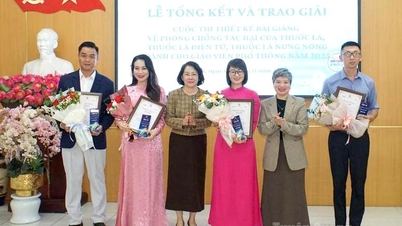


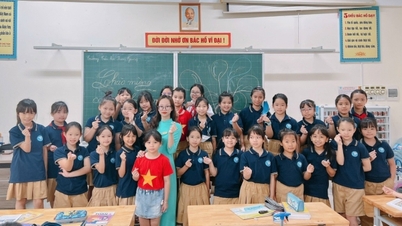

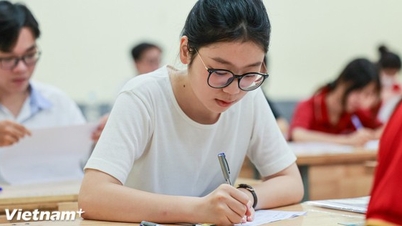



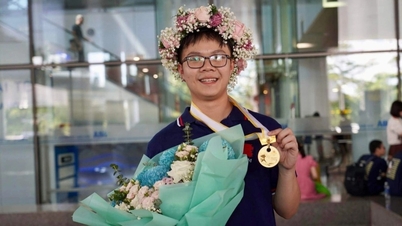

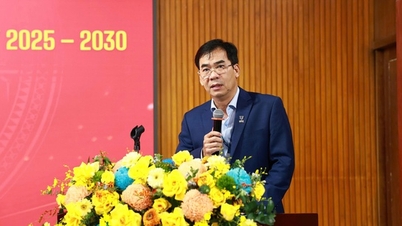



















![[Video] Hue Monuments reopen to welcome visitors](https://vphoto.vietnam.vn/thumb/402x226/vietnam/resource/IMAGE/2025/11/05/1762301089171_dung01-05-43-09still013-jpg.webp)



































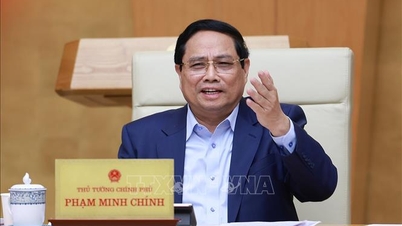
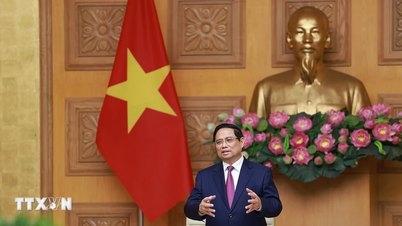















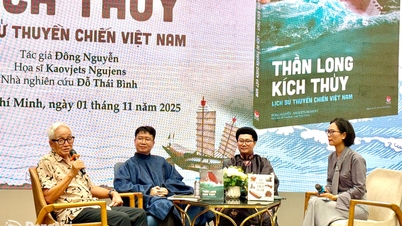


















Comment (0)